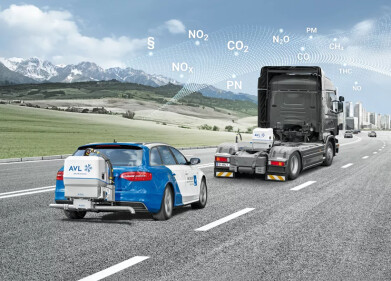Air Monitoring
London Set to Launch UK's First Zero-Emissions Street
Feb 05 2020
The City of London Corporation (CLC) has announced that the UK capital will play host to the country’s first ever zero-emissions street. Beech Street, which is largely located inside a tunnel running underneath the Barbican Estate, is set to be closed to all petrol and diesel vehicles, 24 hours a day, 365 days a year, from spring 2020.
The project will run on an initial 18-month basis to determine how it affects air quality in Beech Street itself and if it causes congestion in other parts of the capital. It forms part of a wider plan by CLC to reduce emissions in the city, with a 15mph speed limit and other zero-emissions zones set to be introduced in the near future.
The first of its kind in the UK
At present, Beech Street’s enclosed nature makes it highly unpleasant for pedestrians and cyclists to navigate, given that the fumes expelled by passing cars have nowhere to escape inside the tunnel. For that reason, it’s the ideal location for Britain’s first zero-emissions road and the vital role of monitoring air quality in cities will become apparent as researchers become able to compare and contrast air quality readings before and after the measure has been implemented.
Scheduled to come into force sometime in spring this year, the initiative still requires rubber stamping by Transport for London (TfL) but is expected to be passed into law without incident. Once operational, it will mean that only those walking or cycling will be able to use the road, with enforcement achieved via automatic number plate recognition (ANPR) cameras and advanced signage installed to warn drivers of the imminent changes.
Of course, there will be some exceptions to the rule. Those working in the emergency services must be allowed to use the road, while delivery drivers, rubbish bin collectors and those who wish to use the car parks located off Beech Street will still be able to drive through the tunnel. So while the measure won’t result in an end to all emissions, it certainly promises to make a big difference.
Following other examples
Speaking about the imminent legislation, CLC chairman Jeremy Simons said, “Drastically reducing air pollution requires radical actions, and these plans will help us eliminate toxic air on our streets.” While Beech Street might soon be the first thoroughfare in the UK to go green by banning petrol and diesel vehicles round the clock, there are plenty of other cities in the world aiming to boost their sustainable credentials with even more drastic measures.
Copenhagen, for example, has targeted 2025 as the year by which it will become completely net carbon-neutral. To realise that lofty ambition, the city’s rulers plan to install 100 new wind turbines, achieve 75% of all journeys via foot, bike or public transport, bring down consumption of electricity and heating resources by 20%, turn all organic waste into biofuel, put in place 60,000 square metres of solar panels and garner all of the city’s heating needs from renewable sources.
Elsewhere, Australian scientists are investigating the use of high technology gases to enable environmentally friend transportation for use in cities across the country. Other cities where older and more polluting cars are being phased out include Oslo, Brussels, Milan, Athens, Rome, Frankfurt and Amsterdam, among many others.
Digital Edition
IET 34.2 March 2024
April 2024
Gas Detection - Biogas batch fermentation system for laboratory use with automatic gas analysis in real time Water/Wastewater - Upcycling sensors for sustainable nature management - Prist...
View all digital editions
Events
Apr 30 2024 Melbourne, Australia
Apr 30 2024 Birmingham, UK
May 03 2024 Seoul, South Korea
May 05 2024 Seville, Spain
May 06 2024 Minneapolis, MN, USA


















